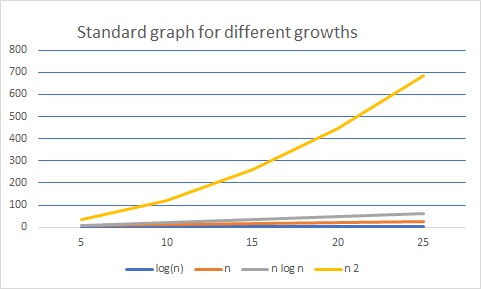Enter 5 numbers
Sorted Array:
No. of instructions count:

Sorted Array:
No. of instructions count:
Sorted Array:
No. of instructions count:
Sorted Array:
No. of instructions count:
Sorted Array:
No. of instructions count:
Sorted Array:
No. of instructions count:
Sorted Array:
No. of instructions count:
Sorted Array:
No. of instructions count:
Sorted Array:
No. of instructions count:
Sorted Array:
No. of instructions count:
Sorted Array:
No. of instructions count:
Sorted Array:
No. of instructions count:
Sorted Array:
No. of instructions count:
Sorted Array:
No. of instructions count:
Sorted Array:
No. of instructions count:
Sorted Array:
No. of instructions count:
int merge_sort(int arr[],int p,int r)
arr:Input Array arr;
p:starting index
r:Last index
q,count:external variable
1. int q;
2. if(p<r)
3. count++;
4. q=(p+r)/2;
5. merge_sort(arr,p,q);
6. merge_sort(arr,q+1,r);
7. merge(arr,p,q,r);
8. end if
9. return 0;
10. end merge_sort
int merge(int arr[],int l,int m,int h)
arr:Input array arr
l,m:Index
arr1,arr2:external array
n1,n2,i,j,k,count: External variable
int arr1[10],arr2[10];
int n1,n2,i,j,k;
n1=m-l+1;
count++;
n2=h-m;
count++;
for(i=0;i<n1;i++)
{
count++;
arr1[i]=arr[l+i];
count++;
}
for(j=0;j<n2;j++)
{
count++;
arr2[j]=arr[m+j+1];
count++;
}
arr1[i]=9999;
arr2[j]=9999;
count++;
i=0;
j=0;
for(k=l;k<=h;k++)
{
if(arr1[i]<=arr2[j])
{
count++;
arr[k]=arr1[i++];
count++;
}
else
{
count++;
arr[k]=arr2[j++];
count++;
}
}
return 0;
}
#include <stdio.h>
#include <conio.h>
#include <process.h>
#include <alloc.h>
int arr[20];
int count=0;
void main()
{ int merge_sort(int[10],int,int);
int merge(int[],int,int,int);
int n,i;
printf("Enter the size of array\n");
scanf("%d",&n);
printf("Enter the elements:");
for(i=0;i<n;i++)
{
scanf("%d",&arr[i]);
}
merge_sort(arr,0,n-1);
printf("Sorted array:");
for(i=0;i<n;i++)
{
printf("%d",arr[i]);
}
printf("count=%d",count);
getch();
}
int merge_sort(int arr[],int p,int r)
{
int q;
if(p<r)
{
count++;
q=(p+r)/2;
merge_sort(arr,p,q);
merge_sort(arr,q+1,r);
merge(arr,p,q,r);
}
return 0;
}
int merge(int arr[],int l,int m,int h)
{
int arr1[10],arr2[10];
int n1,n2,i,j,k;
n1=m-l+1;
count++;
n2=h-m;
count++;
for(i=0;i<n1;i++)
{
count++;
arr1[i]=arr[l+i];
count++;
}
for(j=0;j<n2;j++)
{
count++;
arr2[j]=arr[m+j+1];
count++;
}
arr1[i]=9999;
arr2[j]=9999;
count++;
i=0;
j=0;
for(k=l;k<=h;k++)
{
if(arr1[i]<=arr2[j])
{
count++;
arr[k]=arr1[i++];
count++;
}
else
{
count++;
arr[k]=arr2[j++];
count++;
}
}
return 0;
}

| Best case | |
| Average case | |
| Worst case |